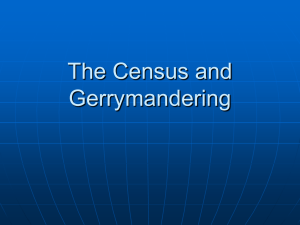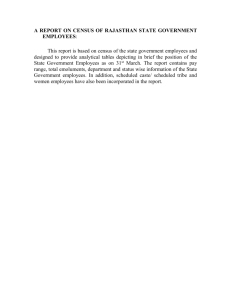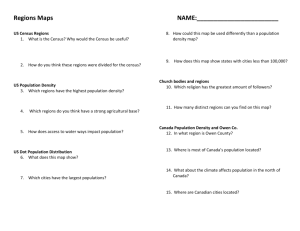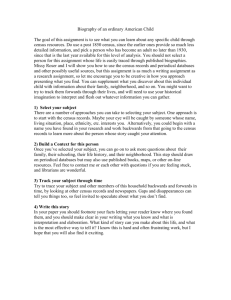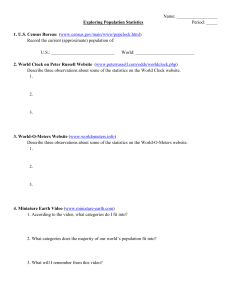The Census and Gerrymandering, Stephen Solomon
advertisement
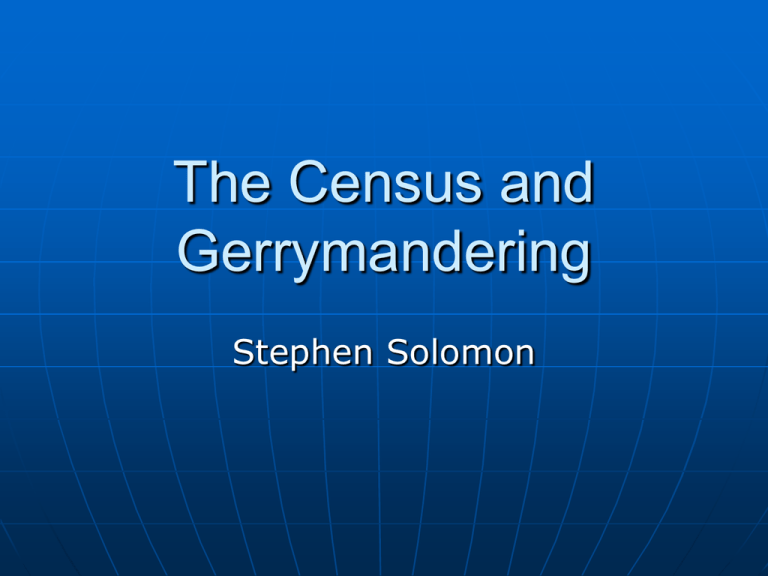
The Census and Gerrymandering Stephen Solomon Census As A Tool For Change Charles Hirschman, scholar of the concept of race, studied drastic and seemingly random changes to the population of Malaysia over. By looking at the census he saw that as time passed the colonial census became predominantly racial and less concerned with indigenous religion Race categories were did not always contain the same choices from census to census They also included choices that were nothing more than geographic landmarks. This was all people can fall into some category and be administered more easily. Racial Quantification Pre-Colonial rulers did take a census but only for military and tax purposes. The colonial census used the data to administer social services and to enforce a racial hierarchy Habits were marked and mapped so the people could be ruled from above. They of course ran into problems when their definition of race was at odds with the definition of race that had been formed over time by the people themselves, not from outsiders. Gerrymandering Modern states use data much like colonial powers to administer regions that are not homogenous Gerrymandering is when borders of a district are manipulated to form a political advantage. Democracies that use the first past the post system to elect a single candidate to represent a district are at a greater risk for gerrymandering. Many countries avoid this problem by having only one district or by having district lines drawn by an independent commission Where Did You Get That Name? The term Gerrymandering came from Elbridge Gerry, an American politician The term was coined as a result of his creative district drawing in Massachusetts in order to give his party, the Jefferson Republican party a political advantage. How and Where Does It Happen? Mostly occurs ın the Unıted States • 36 states have theır dırstıct borders drawn by state legıslature • 7 states have an ındıpendat commıssıon • 7 states only have one dıstrıct Under normal circumstances redistricting takes place after the US census is taken which is every 10 years Borders are drawn by drawn by and approved by elected state politicians Both parties take part in the practice of gerrymanderıng Example of a Gerrymandered District It does not just happen ın the US Iraq was gerrymandered significantly after the Iran-Iraq war and during the US occupation The mostly Shia province of Karbala was reduced in size and its remnants were incorporated into the mostly Sunni Anbar province What Are The Effects? Less accurate representation Less incentive to vote Can erase the political impact of certain groups Dısscussıon Questıons What are the potentıal changes that can happen to a communıty as a result of gerrymanderıng ın the Unıted States? How can communities that are gerrymandered to insignificance overcome become represented? How ıs gerrymandering different than census techniques used by colonizers to manage populations?
